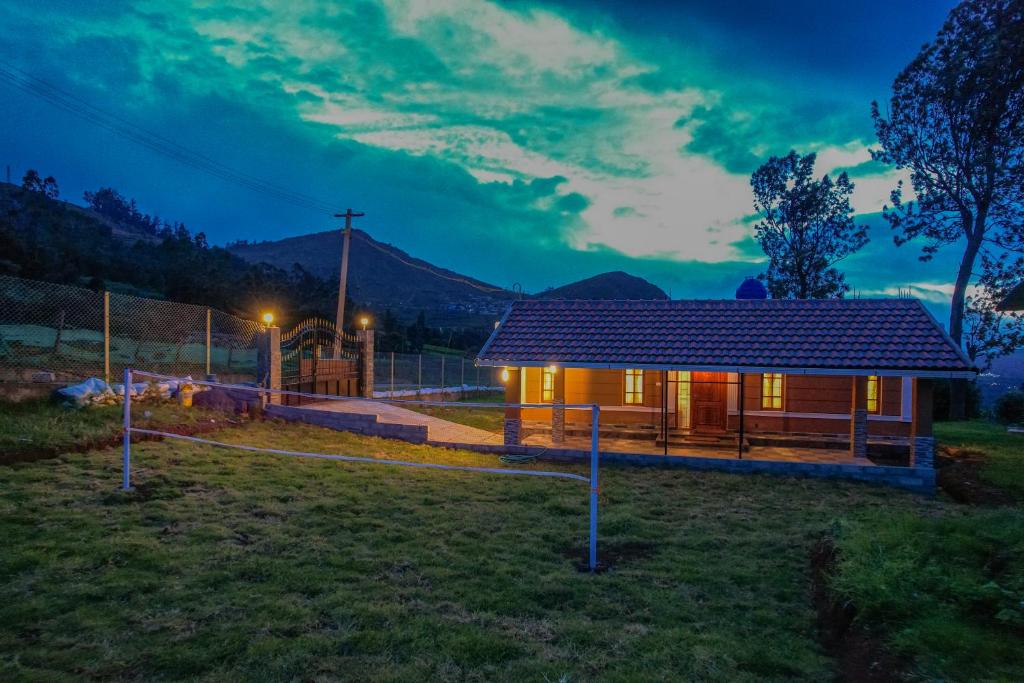The concept of lifelong learning is rooted in the continuous pursuit of knowledge for personal or professional development. In today’s rapidly changing world, keeping your brain engaged through ongoing education is not just beneficial, it’s essential. Regardless of your age, embracing lifelong learning offers a myriad of cognitive, emotional, and social benefits.
 Pin
Pin Table of Contents
Composing the Symphony of the Mind: A Lifelong Journey in Brain Health
As the morning sun whispers through the curtains, casting a gentle glow across the room, there sits an organ within us all that awakens to greet the day with us: the brain. It isn’t just an organ; it’s the grand conductor of our very essence, our thoughts, feelings, and memories. Keeping this maestro in top form isn’t about striking a solitary, harmonious chord that resonates for a single, fleeting moment. Rather, it is akin to composing a lifelong symphony, a journey of countless notes and melodies that create a work of art in perpetual motion.
Imagine, if you will, a pianist. Each day they sit at the grand piano, fingers poised as they embark on the journey of mastering their art. Learning never ceases; every piece presents a new challenge and a new opportunity to sharpen their skill. This is the essence of brain health – a continual pursuit, a dedication not just to what we already know, but to the potential of what we can yet discover.
Consider, for instance, the grand tapestry of your education and experience, not as a finished masterpiece to be hung upon a wall, but as an intricate work in progress. A stitch here, a dab of color there, each day adds something new. To keep the mind agile and alert, one must never cease in the pursuit of knowledge. Take up a fresh topic, one that sparks a flicker of curiosity in the deepest recesses of your thoughts. Let that flame grow into a burning passion for learning.
You might find yourself drawn into the realms of philosophy, where thoughts untangle the complexities of existence. Or perhaps you’ll delve into the intricate beauty of a foreign language, with every new word forming a bridge to a world unknown. Maybe the natural world calls to you, its secrets locked within the DNA of the very life that surrounds us. This journey of the mind need not be a solemn quest; joy and wonder should be your travel companions.
With every new piece of knowledge, consider your brain flexing, growing stronger, the tendrils of your neurons reaching out to grasp new connections. Every book is a dumbbell, each podcast a sprint, every online course a stretch that expands the mind’s flexibility.
As the pianist knows, not every session at the keys is about blazing through the crescendos; there is a time for silence, reflection, and rest. So it is with your brain. Along this journey, care for it with the tenderness it deserves – nourish it with good food, restorative sleep, social connections, and perhaps even a little meditation to clear the mental stage for the next performance.
In the narrative of brain health, you are both the protagonist and the author, and each decision you make writes the script. There is no final act, no closing curtains, but an ongoing saga that can be as rich and vibrant as you choose to make it. Embrace the journey with both hands, eager for the learning that awaits, and watch as your brain – that remarkable maestro – conducts the symphony of your life in ever-more magnificent cadences.
Gardening the Mind: Cultivating Cognitive Diversity for Lifelong Mental Flourish
Imagine your brain as a grand garden, each neuron a blooming flower connected by the twisting, turning vines of your thoughts and memories. Now, envision tending to this garden. Just like the most bountiful plots, your mind flourishes on diversity and balance—a balanced diet for the brain, if you will.
This cerebral nourishment doesn’t come served on a platter but through the richness of experiences and knowledge we consume. Every page of history turned, every line of code deciphered, each melody understood adds another hue to the garden. The nutrients nurturing the soil are the varied subjects that pique our curiosity: a paragraph that sends us back in time, a problem that sharpens our logic, a story that tests our understanding of the human psyche.
Here’s a simple yet practical tip to cultivate such variety: mix it up. Let your mind feast on the complex political landscapes of ancient civilizations, only to switch to the binary simplicity of computer programming. Perhaps on a quiet evening, swap the raw data analyses and spreadsheets for the intricate plot twists of a murder mystery or the profound viewpoints a documentary unravels.
By oscillating between subjects, you weave complexity into your neural network, much like how a chef weaves flavors into a dish. Every topic, like an exotic spice, adds dimension and depth, expanding the cognitive palate. What emerges isn’t just a well-rounded intellect, but a defense against the weeds of cognitive decay, a shield preserving the mind’s agility.
So next time you select a book, queue a podcast, or choose a hobby, think of it as preparing a meal for your brain. Each selection is an ingredient, each curiosity satisfied a bite of brain food. This diet might just be the secret sauce for a vibrant, enduring mind—a veritable spice of cognitive life.
Crafting Neural Masterpieces: The Lifelong Symphony of Learning and Brain Vitality
The journey toward self-improvement often starts with learning new skills. Just as a blacksmith hones the edge of a blade, actively acquiring new abilities sharpens the mind. The science behind this is robust – when you learn something novel, your brain builds new neural pathways, which are essential for keeping your mind agile and healthy.
Picking up new skills can significantly bolster memory functions. As you challenge your brain to remember steps and processes involved in a new hobby, your memory muscle flexes and grows stronger. It’s akin to cerebral cross-training; for example, learning a new language exercises memory recall, while mastering an instrument refines your motor skills and auditory acuity.
When it comes to problem-solving, new skills can be a game-changer. They often require you to think critically and adapt to unfamiliar situations. For instance, coding tasks you with understanding logic and structure, while knitting might challenge you to untangle complex patterns. These problem-solving exercises can have a domino effect, enhancing your ability to navigate everyday challenges with greater ease.
Creativity also gets a significant boost from learning new skills. Creativity isn’t limited to artistic endeavors; it’s a valuable skill that involves seeing things in new ways, making connections between seemingly unrelated concepts, and generating innovative solutions. By stepping into an unfamiliar discipline, your mind is pushed to think differently, which can ignite your innate creativity and inspire out-of-the-box thinking in other areas of life.
Here’s a practical tip to set you on this path:
Delve into a new hobby or interest, one that sparks your curiosity and excitement. With a wealth of options available, there’s no limit to what you can explore. Knitting can be a soothing, tactile experience that yields tangible results whereas coding opens a digital world of creation, with each line of code building towards functional programs. Pottery brings you into the meditative realm of crafting with your hands, and photography trains your eye to capture the world through a unique lens.
To start, select something that aligns with your interests. Do you prefer serene, solo activities or engaging, community-oriented pastimes? Regardless of what you choose, ensure it’s something that genuinely fascinates you. Once you’ve pinpointed your new hobby, look for resources to help you begin – local classes, online tutorials, books, and community clubs can provide the guidance you need to get started.
Remember, this isn’t a race – it’s a journey. Take the time to savor each step of the learning process. As you do, you’ll not only be crafting a “New You” with an array of new talents but also enriching your brain’s health and vitality, which is the ultimate goal of this lifelong symphony of learning.
Minding the Mind: Harnessing Mindfulness for Peak Cognitive Fitness
The brain, like any sophisticated machinery, requires regular maintenance to function optimally. Mindfulness, often perceived as an enclave of spiritual practitioners, has gained scientific backing for its profound effects on cognitive health.
Meditation and other mindfulness practices serve as a mental gym where neural pathways are strengthened, much like muscles during physical exercise. Engaging in these practices can yield a multitude of cognitive benefits:
1. Enhanced Focus: In the digital age, with an onslaught of information and distractions, the ability to focus is akin to a superpower. Mindfulness trains the brain to return to the present moment, offering a break from the constant chatter and honing attention skills. Over time, this kind of mental discipline can bolster one’s ability to concentrate during various tasks.
2. Stress Reduction: Chronic stress is a scourge of modern living, and it can have catastrophic effects on cognitive functions, eroding memory and executive function. Mindfulness encourages a relaxation response, which can lower blood pressure and reduce the production of stress hormones, such as cortisol, thereby shielding the brain from stress-induced damage.
3. Improved Memory: Memory enhancement is another gift of mindfulness. The practice can lead to increased grey matter density in brain regions associated with memory and learning. This could pose as a preventive strategy against age-related cognitive decline and memory impairments.
To weave mindfulness into the fabric of daily life, consider these simple steps:
- Start Small: Commit to a few minutes each day, gradually increasing the duration as you become more comfortable with the practice.
- Routine Integration: Choose a regular time for mindfulness practice, perhaps morning or evening, or during breaks in your workday, to establish a consistent routine.
- Guided Sessions: For beginners, guided meditations can be a helpful way to start. Use apps or online resources that provide structured instructions to ease into the process.
- Mindful Moments: Beyond meditation, try to practice mindfulness during daily activities like eating, walking, or even in conversation, fully engaging with the present moment.
- Environment Matters: Find a quiet, comfortable space where you are less likely to be disturbed. This sets the stage for a more effective practice.
Even a commitment of a few minutes a day to mindfulness meditation can initiate a ripple effect, leading to a cascade of cognitive benefits. Expanding on this practice and nurturing it can result in a steadfast ally for brain health, further enriching the tapestry of mental resilience and agile thought as life progresses.
Keeping Your Brain in the Loop: Why Staying Informed is a Mental Must-Do
In an age where change is the only constant, staying intellectually nimble is not a luxury—it’s a necessity. The ever-evolving landscape of technology, culture, and knowledge means that what was relevant yesterday might be obsolete tomorrow. This rapid pace of change doesn’t just influence societal needs; it directly impacts our cognitive health.
The brain is inherently plastic, meaning it is capable of reshaping itself in response to what we do, what we experience, and what we learn. New information challenges the brain to create new neural connections, which keeps it sharp and efficient. Just like muscles that atrophy without exercise, cognitive functions can decline if they’re not regularly challenged.
Practical tip: To keep your brain in the loop, actively seek out new information about emerging trends and developments. This practice ensures that your brain stays engaged and exercises its ability to learn and adapt.
How exactly can you accomplish this?
1. Read: Dive into the latest publications, whether they are articles, books, or research papers, that focus on cutting-edge advancements in your field of interest or in general knowledge. Platforms like Medium, online journals, and Google Scholar can be your starting points.
2. Webinars: These are a goldmine for contemporary insights straight from thought leaders and innovators. Websites like Eventbrite or LinkedIn often list upcoming webinars across different fields.
3. Online Forums: Digital communities like Reddit, Quora, or specific industry forums are places where you can both learn from others and also contribute to the dialogue, further enhancing cognitive engagement.
4. Community Discussions: These can take place in local settings like town hall meetings, or internationally focused group discussions online. Participating in such dialogues keeps your perspective fresh and diversified.
6. Podcasts and Videos: Subscribe to channels and podcasts that regularly discuss current events or explore new ideas. Platforms like YouTube and Spotify offer an abundance of content that can keep you informed.
Remember, the goal here isn’t just to accumulate facts; it’s to engage with new concepts critically. Ask questions, reflect on how these trends impact you personally and professionally, and consider what the future might hold.
Making a habit of integrating these activities into your daily or weekly routine can lead to a more stimulated, engaged, and capable brain, preparing you not only to adapt to the future but to shape it. Keep your cognitive gears well-oiled by continually feeding them with the fuel of fresh knowledge, and you will find yourself not just keeping pace with the changing world, but joyfully synchronizing with its complex, fascinating rhythms.
Moving Minds: Harnessing the Cognitive Symphony of Physical Activity
Just as physical activity sculpts our muscles, it also enhances the most vital organ in our body: the brain. Engaging in regular exercise goes beyond the brawn; it’s a pillar for cognitive health, acting as a catalyst for enhanced brain function. When we push our bodies into motion, we fuel the brain with oxygen-rich blood, stimulate the release of growth factors, and encourage the formation of new neural connections.
Physical activity is a potent antidote against the decay of cognitive abilities. As we age, the specter of cognitive decline looms, but exercise is a beacon of hope in this landscape. It’s not just about delaying decline; exercise helps in the creation and maintenance of memory, supporting the hippocampus—an area of the brain crucial for memory and learning. Furthermore, it acts as a shield against neurodegenerative diseases and mental health issues by releasing endorphins that promote a sense of well-being.
Practical Tip: Get Moving
Adopting a lifestyle that includes physical exercise does not necessitate extreme measures. You can forget the daunting vision of marathons or heavy weight lifting—brain health begins with simple steps. A tranquil walk in the park can be both a sensory pleasure and a boost to cognitive function. Nature’s scenery and fresh air can invigorate the mind as well as the body.
Alternatively, yoga offers a two-pronged approach by combining physical postures with mindfulness, facilitating both a sharpened focus and a flexible body. Each asana is a step towards calming the mind and improving cognitive reserve.
For those who find joy in music, nothing beats a dance-off in the living room. It’s the perfect way to elevate the heart rate while indulging in the fun. Dance maneuvers require coordination, rhythm, and concentration, all of which light up various regions of the brain, turning your living space into a playground for neuroplasticity.
These activities might seem disparate, but they share a common thread: they elevate the heart rate, and what’s good for the heart is good for the brain. Weaving this tapestry of movement into the fabric of daily life can lay the foundation for a robust cognitive future. So, step into your trainers, roll out your yoga mat, or just turn up the volume on your favorite tune, and let your brain dance to the rhythm of health.
Perpetual Growth: The Lifelong Learner's Voyage to a Richer Self
Lifelong learning is an investment in oneself that pays dividends across the entire spectrum of existence. The practice of consistently seeking new knowledge and experiences doesn’t merely fill a repository of facts; it fosters a state of perpetual growth and transformation that touches every aspect of the learner’s life.
At its core, lifelong learning cultivates a mindset of curiosity. Curious individuals view the world as an infinite puzzle where every piece inspires wonder. They ask questions, challenge assumptions, and explore the unknown with an unquenchable thirst for understanding. This ceaseless inquiry doesn’t just lead to a broader knowledge base; it instills a habit of deep reflection and critical thinking — skills that are invaluable in navigating the complexity of everyday life.
Learning continuously keeps the brain active and elastic, much like stretching keeps muscles supple. It can delay cognitive decline and has been associated with a lower incidence of neurodegenerative diseases such as dementia. The constant acquisition of new skills and knowledge encourages neuroplasticity, the brain’s ability to reorganize itself by forming new neural connections throughout life.
Adaptability is another offspring of lifelong learning. In a world where change is the only constant, the ability to adapt is paramount. By exposing oneself to new situations and learning how to cope with them, one naturally becomes more adept at adjusting to shifts, whether they’re technological advancements, cultural shifts, or unexpected personal challenges.
In terms of practical benefits, lifelong learners often enjoy enhanced employability. With a diverse and continuously expanding skill set, they can maneuver through different career opportunities. Employers value workers who exhibit a proactive attitude towards learning and self-improvement, as they demonstrate both initiative and the potential to innovate within their roles.
But perhaps the most profound benefit is the enrichment of the learner’s inner life. The quest for knowledge can lead to increased self-esteem and a greater sense of purpose. As learning often involves overcoming challenges and obstacles, each triumph adds to a resilient self-concept. Additionally, the social interaction that often comes with learning — through discussions, group classes, or online forums — can provide a sense of community and belonging.
The pleasure derived from learning can be a source of joy and a counterbalance to the stresses of daily life. Engaging with a captivating subject can provide intellectual stimulation and become a source of passion and excitement. It’s a way to sustain one’s mental youth and, by extension, a more vibrant and engaged existence.
Lifelong learning, thus, shapes a better you — not only by the accumulation of knowledge but by molding a persona that is curious, adaptable, and equipped with the cognitive tools to construct a rich, meaningful, and resilient life.
In Conclusion: The Search Never Ends
Every moment hums with the potential for discovery, like a room filled with a thousand unopened books, each spine embossed with the promise of a new world. The quest for knowledge, for learning that percolates through the layers of our consciousness, is unending. This, indeed, is where its beauty lies—each step is both a beginning and a continuation of a journey that knows no finality, no ultimate zenith.
Imagine yourself in an ever-expanding landscape, where the horizons stretch infinitely with every new idea learned, with every fresh skill perfected. Within you, there’s a garden where each seed of knowledge blossoms into a tree of profound wisdom. With this growth comes a profound enrichment not just of the intellect, but of the soul—the very essence of life.
In this grand adventure, every skill you master weaves a richer tapelet of experience. The songs you learn to play on a piano paint your world with new sounds, the languages you absorb let you hear the whispers of different cultures, and the recipes you recreate add flavor not just to your meals but to your memories. This is the mosaic of lifelong learning—each tile a glistening piece of knowledge that makes the grand picture of your life more vibrant, more exquisite.
Commence this expedition with zeal, as if you were an explorer of old, mapping the terrains of the mind. It’s a journey that can begin fresh each morning with the dawn’s first light. It is never too soon to start, nor is it ever too late. The mind can weave new patterns at any age, can expand like the night sky, eager to sparkle with new constellations of thought.
This path to keeping your brain sharp is inscribed with a thousand tiny victories, each one a testament to your mental agility and resilience. With every book you read, every puzzle you solve, every new fact you assimilate, you are not just walking—you are dancing toward a healthier, more jubilant, and more intelligent you.
So let your curiosity be your compass, guiding you through the vast landscapes of learning. Let it lead you through the pages of books, through the silent halls of museums, through the infinite web of the internet. Embrace the thrill that comes from new knowledge, for every skill you acquire is a torchlight in the expanding universe of your mind.
In conclusion, the search for learning is a reflection of life itself—dynamic, transformative, and unceasing. Its horizon is boundless, and you are the navigator of this epic voyage. The pursuit of lifelong learning does not lead to a single, tangible endpoint but, rather, it’s a passage through the myriad gateways of wisdom, where every journeyman is both student and teacher, eternally teaching oneself the art of being eternally young in the mind.
And so, my friend, continue to explore, to seek, to grow. The symphony of learning plays on, and your melody within it is ever-changing, ever-beautiful, ever-new.
Enjoyed the article? Make sure you don’t miss our future pieces by following us on Horizon Dwellers! For even more engaging content, check out our Instagram, Facebook, and YouTube media. See you there!
FAQs for Lifelong Learning: Keeping Your Brain Engaged at Any Age
Lifelong learning is the ongoing, voluntary, and self-motivated pursuit of knowledge for personal or professional reasons. It not only enhances social inclusion and active citizenship but also self-sustainability, as well as competitiveness and employability.
It’s important because it helps to maintain the brain’s engagement as we age, contributing to mental agility and health. It supports adapting to change, promotes wellbeing, and improves the quality of life by providing new goals and achievements.
Yes, studies suggest that engaging in continuous learning activities can help to slow down cognitive decline by keeping the brain active and challenging it with new tasks.
Absolutely anyone! Lifelong learning is inclusive, with opportunities for all ages and backgrounds. It’s never too late or too early to begin learning something new.
Anything that engages your brain and helps you learn new information or skills, such as reading, taking courses, attending workshops, learning a new language or instrument, or even picking up a new hobby.
Start by identifying areas that interest you or skills you’d like to develop. Look for local classes, online courses, webinars, or simply pick up books on the subject. Commit to regular study or practice, and try to connect with others who share the same interests.
Not at all. There are many free or low-cost resources available, such as public libraries, open online courses (like MOOCs), and community events or workshops.
Absolutely. Technology provides access to a vast array of information and learning platforms. From educational apps to online courses, technology can provide convenient ways to access learning materials regardless of your location.
The amount of time can vary. The key is consistency rather than the length of time. Even spending a short period each day or a few hours a week can have meaningful benefits.
It’s normal to experience challenges or to have times when you’re less engaged. The beauty of lifelong learning is its flexibility—adjust your pace, switch to a new activity that better suits you, or take a break if needed. The goal is to make learning enjoyable and rewarding, not stressful.




























